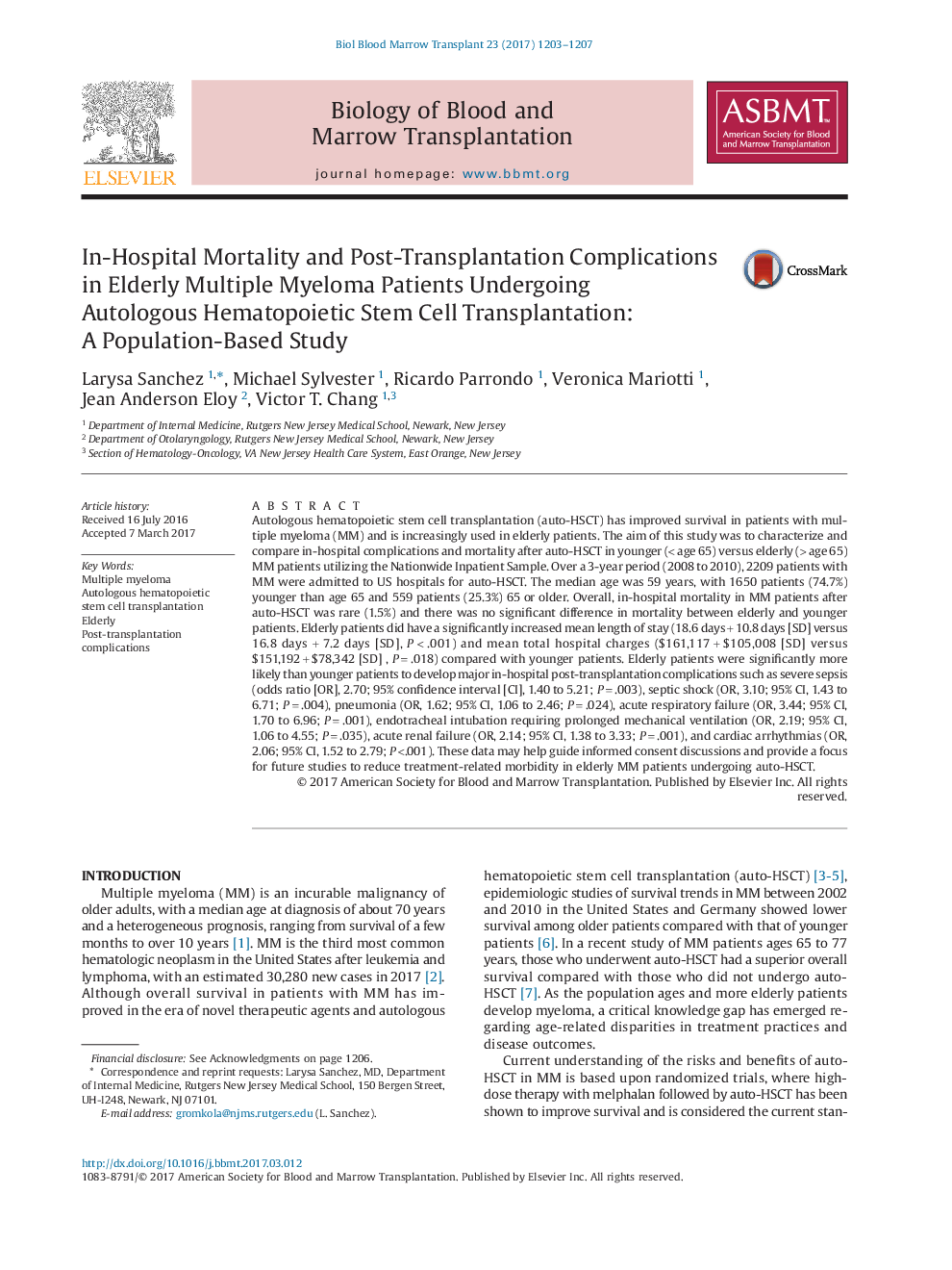| Article ID | Journal | Published Year | Pages | File Type |
|---|---|---|---|---|
| 5524359 | Biology of Blood and Marrow Transplantation | 2017 | 5 Pages |
â¢There was no significant difference in in-hospital mortality in elderly compared with younger multiple myeloma patients undergoing autologous hematopoietic stem cell transplantationâ¢Elderly patients were more likely to develop post-transplantation complications, such as severe sepsis and septic shock, as well as pulmonary, renal, and cardiac toxicitiesâ¢Elderly patients had longer hospital length of stays and increased total hospital costs compared with younger patients undergoing autologous hematopoietic stem cell transplantation
Autologous hematopoietic stem cell transplantation (auto-HSCT) has improved survival in patients with multiple myeloma (MM) and is increasingly used in elderly patients. The aim of this study was to characterize and compare in-hospital complications and mortality after auto-HSCT in younger (< age 65) versus elderly (> age 65) MM patients utilizing the Nationwide Inpatient Sample. Over a 3-year period (2008 to 2010), 2209 patients with MM were admitted to US hospitals for auto-HSCT. The median age was 59 years, with 1650 patients (74.7%) younger than age 65 and 559 patients (25.3%) 65 or older. Overall, in-hospital mortality in MM patients after auto-HSCT was rare (1.5%) and there was no significant difference in mortality between elderly and younger patients. Elderly patients did have a significantly increased mean length of stay (18.6 days + 10.8 days [SD] versus 16.8 days + 7.2 days [SD], Pâ<â.001) and mean total hospital charges ($161,117â+â$105,008 [SD] versus $151,192â+â$78,342 [SD] , Pâ=â.018) compared with younger patients. Elderly patients were significantly more likely than younger patients to develop major in-hospital post-transplantation complications such as severe sepsis (odds ratio [OR], 2.70; 95% confidence interval [CI], 1.40 to 5.21; Pâ=â.003), septic shock (OR, 3.10; 95% CI, 1.43 to 6.71; Pâ=â.004), pneumonia (OR, 1.62; 95% CI, 1.06 to 2.46; Pâ=â.024), acute respiratory failure (OR, 3.44; 95% CI, 1.70 to 6.96; Pâ=â.001), endotracheal intubation requiring prolonged mechanical ventilation (OR, 2.19; 95% CI, 1.06 to 4.55; Pâ=â.035), acute renal failure (OR, 2.14; 95% CI, 1.38 to 3.33; Pâ=â.001), and cardiac arrhythmias (OR, 2.06; 95% CI, 1.52 to 2.79; P <.001). These data may help guide informed consent discussions and provide a focus for future studies to reduce treatment-related morbidity in elderly MM patients undergoing auto-HSCT.
